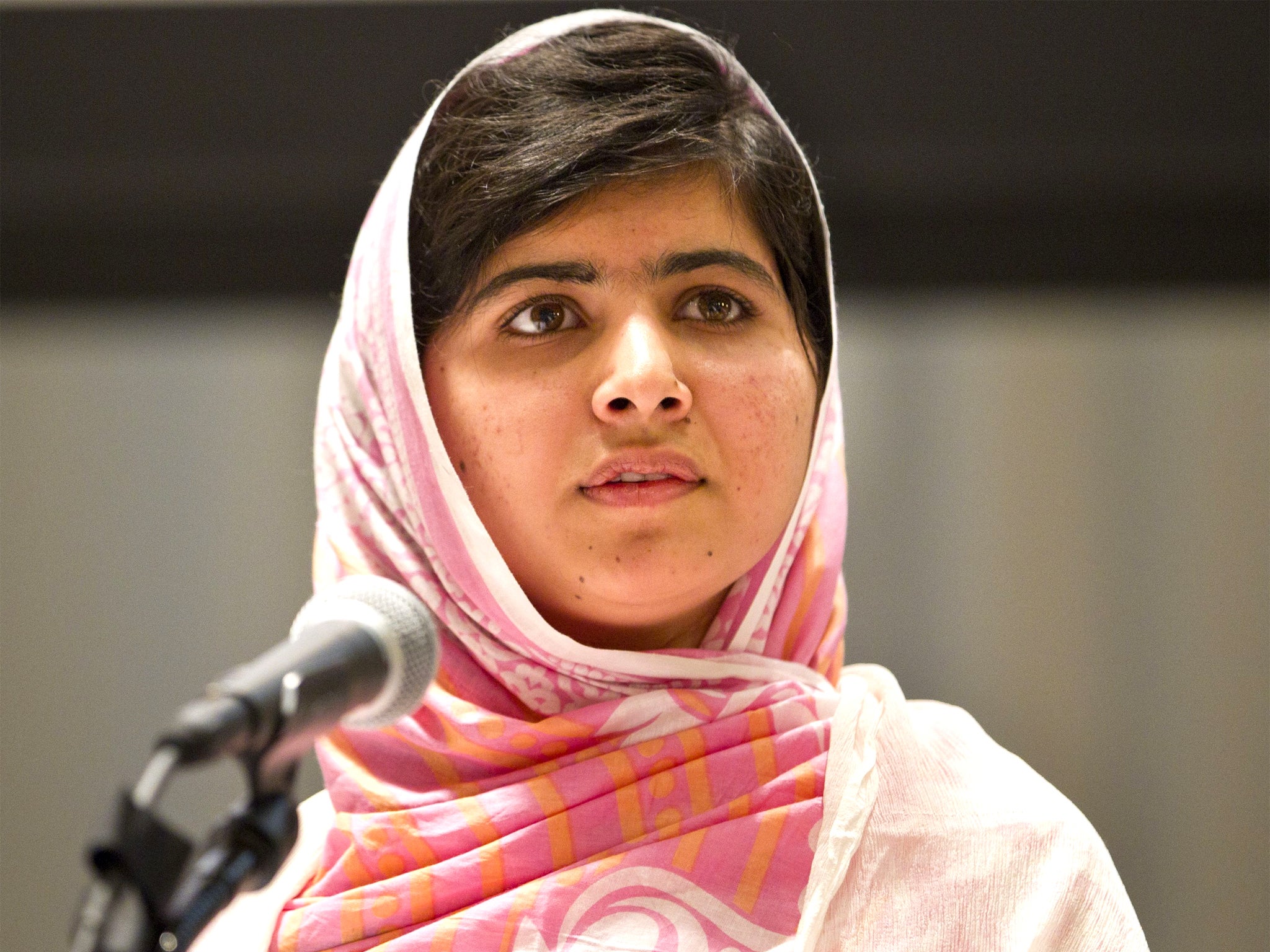Pakistan Taliban's letter to Malala Yousafzai: We tried to kill you because you were smearing our cause - but we regret attack

Your support helps us to tell the story
From reproductive rights to climate change to Big Tech, The Independent is on the ground when the story is developing. Whether it's investigating the financials of Elon Musk's pro-Trump PAC or producing our latest documentary, 'The A Word', which shines a light on the American women fighting for reproductive rights, we know how important it is to parse out the facts from the messaging.
At such a critical moment in US history, we need reporters on the ground. Your donation allows us to keep sending journalists to speak to both sides of the story.
The Independent is trusted by Americans across the entire political spectrum. And unlike many other quality news outlets, we choose not to lock Americans out of our reporting and analysis with paywalls. We believe quality journalism should be available to everyone, paid for by those who can afford it.
Your support makes all the difference.A leading commander of the Pakistani Taliban has written to Malala Yousafzai – the 16-year-old schoolgirl and education advocate who survived a near-fatal assassination attempt last October – to express his regret at the attack.
The letter is written by Adnan Rashid, a prominent member of the Pakistani Taliban who joined the militant group after a career as a technician in the Pakistan Air Force.
“When you were attacked, it was shocking for me,” wrote Mr Rashid, according to the letter published by Channel 4. “I wished it would never happened[sic] and I had advised you before.”
The 1,863-word letter, dated 15 July, doesn’t condemn the incident, however. Mr Rashid also declines to say whether the attempt to kill Malala was “Islamically correct or wrong, or you were deserved to be killed or not”. Instead, he writes, “Leave it to Allah… He is the best judge.”
In 2012, the Pakistani Taliban sprang Mr Rashid out of Bannu jail along with nearly 400 other militants. In the letter to Malala, Mr Rashid makes a fleeting reference to his escape. In 2005, he had been given a death sentence for his involvement in a plot to assassinate former military ruler General Pervez Musharraf.
Throughout the letter, Mr Rashid is by turns conciliatory, defensive and belligerent. He wants to reassure Malala that she wasn’t targeted for demanding education. “It is amazing you are Shouting[sic] for education,” he writes. Malala’s real offence was not her calls for schooling, he writes, but “running a smear campaign to malign” the Taliban.
Mr Rashid also accuses Malala of using her writing in a “provocative” way, which he says is a form of violence. “You are using your tongue on the behest of others,” Mr Rashid writes, echoing widespread and lurid conspiracy theories about Malala. “You must know that if the pen is mightier than the sword, then the tongue is sharper… and in wars, the tongue is more destructive than any weapon.”
The Taliban commander adopts an almost wounded tone when trying to respond to the list of the militants’ crimes. He writes that the Taliban alone are not responsible for blowing up schools, blaming the Pakistan army for using them as bases, and venal local officials for allegedly staging school explosions to siphon off cash.
The former Pakistan air force technician also tries to defend the gruesome murders of polio vaccination teams across the country, invoking anti-Semitic conspiracy theories. Nearly 20 polio workers have been killed in recent months. Pakistan remains one of just three countries where polio is still an epidemic, with nearly 60 cases reported last year.
Mr Rashid didn’t write the letter on behalf of the Taliban, he was careful to stress, but in a “personal capacity”. He ends it by inviting Malala back to Pakistan, and to join a local madrassa for girls.
Speaking at the UN headquarters in New York last Friday, Malala – who is considered a contender for the Nobel Peace Prize – said books and pens frighten extremists, and urged education for all, including “for the sons and daughters of the Taliban and all the terrorists”.
She has not commented publically on the letter.
Join our commenting forum
Join thought-provoking conversations, follow other Independent readers and see their replies
Comments